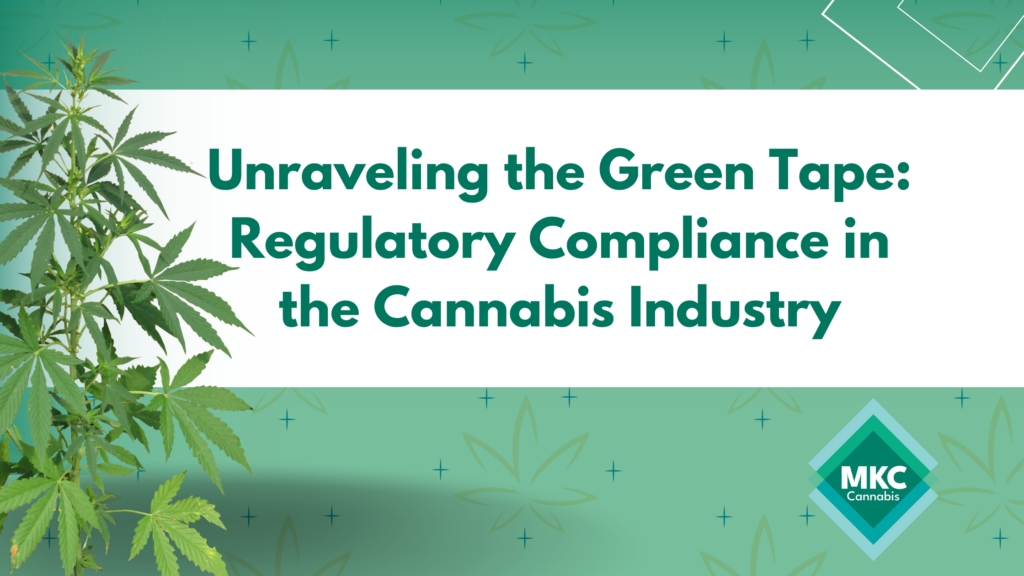Greetings, I’m Megan Killion, your friendly neighborhood cannabis marketing consultant. The cannabis industry is blossoming at an exponential rate, reminiscent of a sativa basking in abundant sunlight. However, similar to the challenges one might encounter when cultivating the temperamental sativa, the cannabis industry too is riddled with its fair share of complex situations. Chief among them, navigating through the intricate maze of regulatory compliance. Today, we’ll dive into the thick of it, exploring the intricate realm of regulatory compliance within the cannabis world.
From the outside, the regulatory environment governing cannabis may seem paradoxical. Cannabis is legal in several U.S. states but remains an illegal substance at the federal level. Consequently, this juxtaposition spawns a labyrinth of compliance issues, making the management of a cannabis business akin to running a grow operation without a pH test – not advisable, to say the least.
How does marketing fit into this intricate picture? Drawing parallels from cannabis cultivation, where the perfect Blue Dream requires an ideal balance of light, water, and nutrients, marketing in the cannabis space also demands a unique balance. This equilibrium necessitates a blend of creativity, strategic planning, and (yes, you’ve guessed it) stringent adherence to compliance.
So, fasten your seatbelts as we delve into the regulatory aspects of the cannabis industry, and understand how marketing strategies can be devised to navigate through this complex landscape.
This blog post is intended to be informative and does not constitute legal or professional advice. Always consult with a professional or a legal expert when making business decisions.
- National Conference of State Legislatures: State Medical Marijuana Laws ↩
- Bloomberg Law: Marijuana Businesses Can’t Bank on Leniency as Feds Increase Scrutiny ↩
- Frontiers in Communication: Marketing Cannabis Products: A Regulatory Minefield ↩
The Tangle of State vs. Federal Laws
One of the fundamental challenges that the cannabis industry grapples with is the dissonance between state and federal laws. As of 2023, over 30 states and the District of Columbia have legalized medical cannabis, with a steadily growing number also permitting recreational use. However, on the federal side, the Drug Enforcement Agency (DEA) still classifies cannabis as a Schedule I substance – i.e., it has no accepted medical use and a high potential for abuse.
This schism has direct implications for businesses that operate in the cannabis industry. Cannabis businesses are often denied access to basic banking services because federal laws still criminalize marijuana-related transactions. This forces many cannabis enterprises to operate predominantly in cash, escalating the risk of theft and other security issues.
Marketing Hurdles
For cannabis businesses, advertising and marketing come with their unique set of hurdles. The varied state laws and federal restrictions impose significant constraints on how cannabis businesses can promote their products.
For instance, social media platforms like Facebook, Instagram, and Google generally prohibit cannabis ads due to the conflict with federal law. This means traditional digital marketing strategies such as PPC advertising, social media campaigns, and influencer marketing are often off the table for cannabis businesses.
Even where state laws allow cannabis advertising, they often come with stringent requirements. Many states require ads to demonstrate that they are intended for audiences over 21 and prohibit the use of certain marketing tactics that could appeal to underage individuals.
Walking the Tightrope: Compliance in Marketing
Given the aforementioned challenges, how does a cannabis business effectively market its products while staying within the boundaries of compliance?
One solution is to leverage platforms and strategies that allow more flexibility. Content marketing, SEO, PR, and email marketing have all proven to be effective strategies for cannabis businesses. Utilizing these tactics can help businesses connect with their audience while avoiding the restrictions imposed by traditional advertising channels.
Businesses should also work with legal professionals who specialize in cannabis law. These experts can help businesses understand the specific regulations in their state and ensure that their marketing practices are in line with current legislation.
In Conclusion
Navigating the regulatory landscape in the cannabis industry can feel daunting. However, with the right knowledge and resources, cannabis businesses can successfully traverse this terrain. The key lies in understanding the existing regulations at both the state and federal levels, aligning marketing strategies accordingly, and consulting with legal professionals to ensure ongoing compliance.
As the industry continues to grow and evolve, the hope is that the regulatory environment will become more straightforward. Until then, it’s up to businesses to stay educated and adapt their strategies to fit within the existing framework.
This blog post is intended to be informative and does not constitute legal or professional advice. Always consult with a professional or a legal expert when making business decisions.
- National Conference of State Legislatures: State Medical Marijuana Laws ↩
- DEA: Drug Scheduling ↩
- American Bankers Association: Banking and Marijuana ↩
- Forbes: Marijuana Advertising Laws Still Hazy ↩
- Digiday: How Cannabis Brands are Forced to Navigate Social Media’s ‘Shadow Ban’ ↩
- Marijuana Business Daily: Marijuana Advertising Regulations: What You Need to Know ↩
- Cannabis Business Executive: Marketing and Advertising Your Cannabis Business: 5 Strategies to Implement Now ↩
- Marijuana Venture: Legal Advice for Cannabis Marketing ↩







